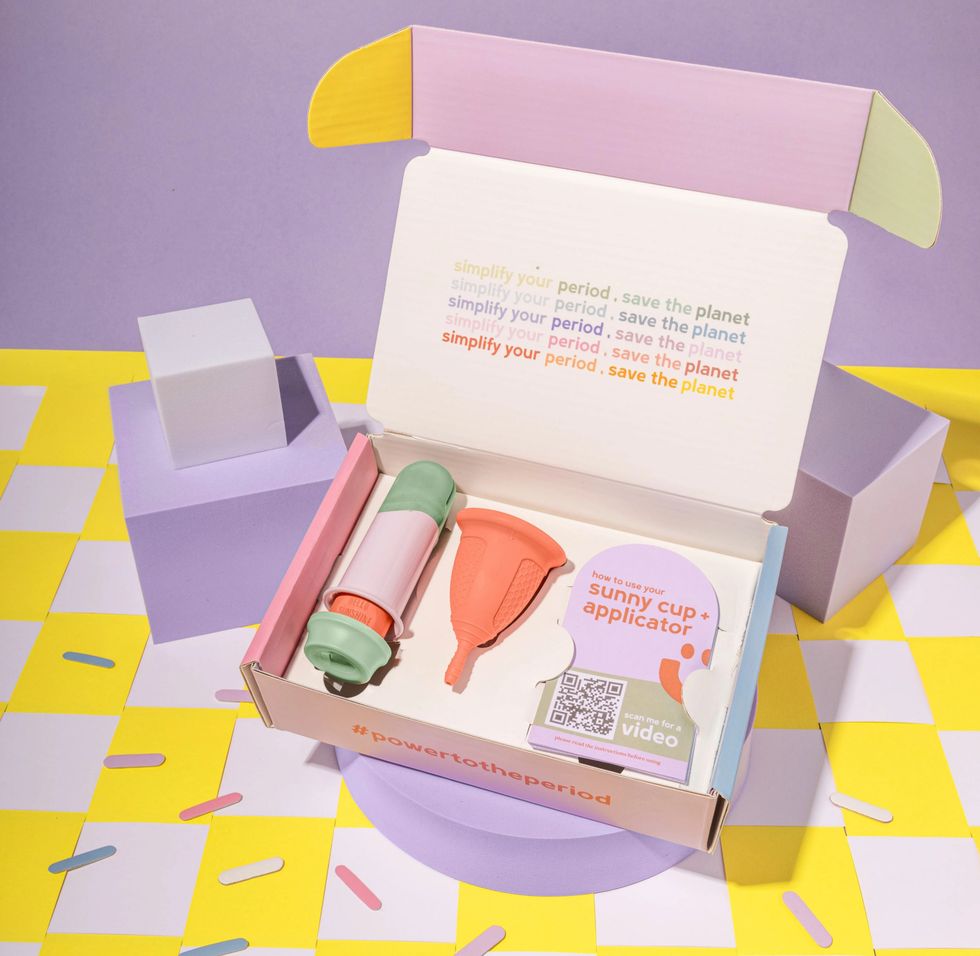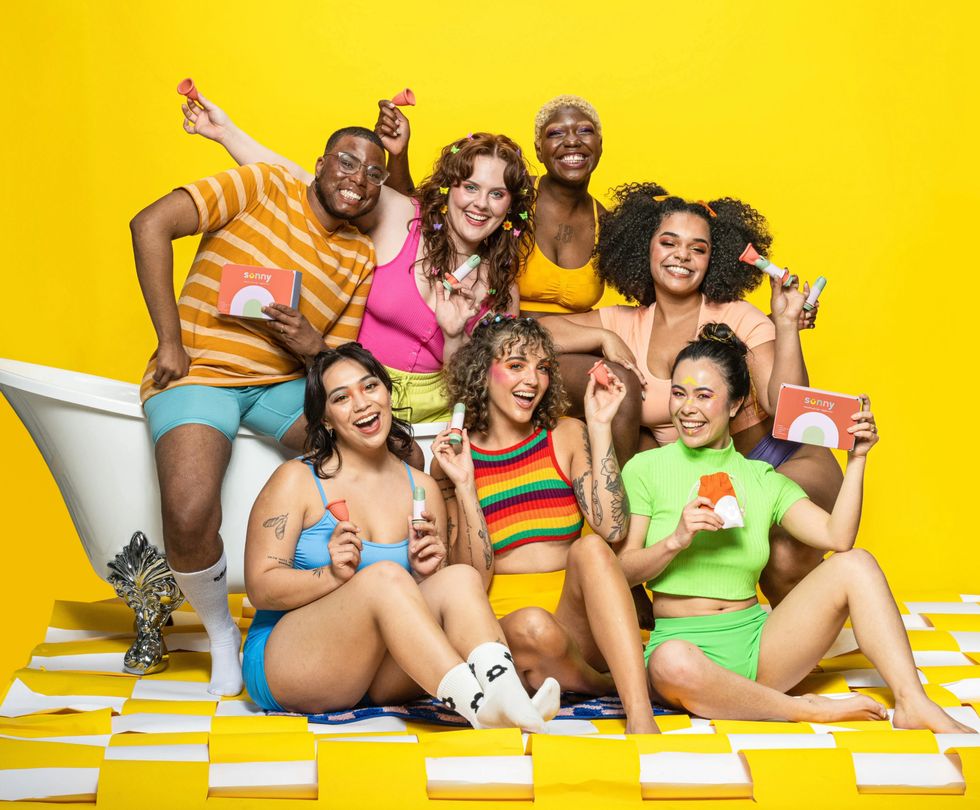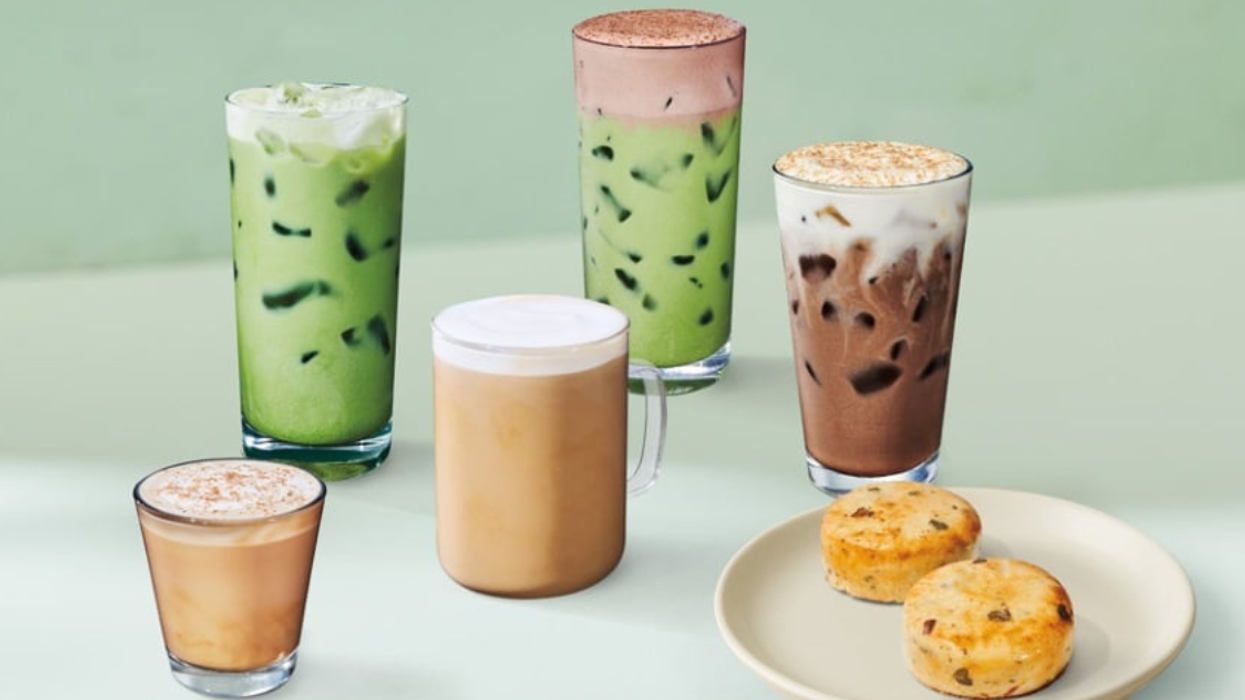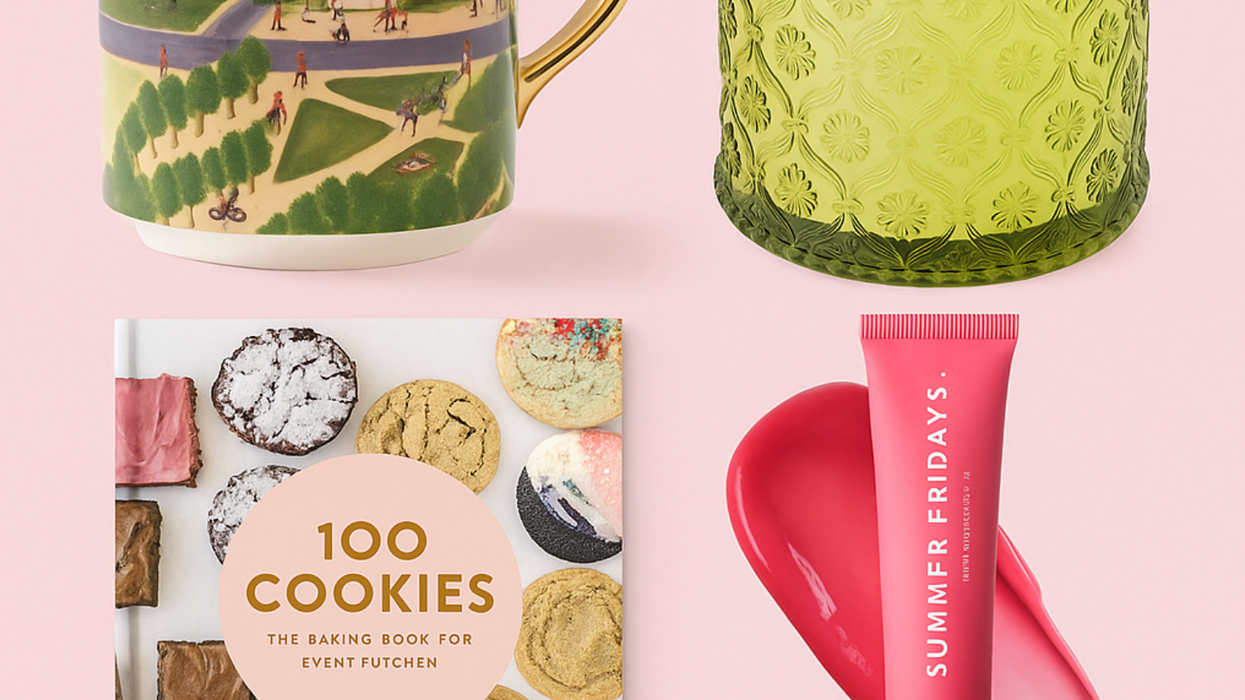Here's why the Sunny Cup is more than just a period product. Photo by Scott Vo Photography
The Sunny Cup Helps Our Planet Be Better, Even Beyond Sustainability

Meredith Holser is the Shopping Editor at Brit + Co, covering everything from seasonal fashion trends and the best grocery finds from Trader Joe's to shoes actually worth splurging on and life-changing beauty products. Outside of work, you can catch Meredith hiking, trying new recipes, and dreaming about having a yummy little treat.
You’re sustainable. You use reusable bags for grocery trips and swore off plastic water bottles in favor of saving the earth, but have you ever considered the environmental impact of your period? The tampons or pads that you just used during your last cycle make up one small speck in the nearly 200,000 metric tons of landfill waste derived from period products every year. Yep – it’s an unfathomable number, and it doesn’t even begin to account for the period litter scattered across the world’s beaches *or* the microplastics derived from them (which we have yet to quantify and truly understand their impact).
In a time where our planet really needs it, a lot of us want to practice sustainability, but it’s time to actually mean it. The founders of Sunny Period agree. In response, they developed the Sunny Cup, a first-of-its-kind reusable menstrual cup that inserts like a tampon with the help of a unique applicator.
Cindy Belardo, 26, and Drew Jarvis, 23, might have come up with the Sunny Cup from opposite sides of the country, but both knew they needed to find a solution for traditional menstrual cups that just weren’t meeting their respective needs.
“I had not learned about menstrual cups before, and was so intrigued,” said Belardo. “But, the learning curve was something that was not ideal for me, and I really wanted to make it work. I knew that others would run into the same problem.”
Menstrual cups were downright frustrating to use.
“When I went to try menstrual cups, I was a little bit intimidated, but I was very willing to at least give it a shot. I spent an hour in the bathroom trying to put it in. I was laughing and crying, like “what the hell is this thing?” said Jarvis. “I ultimately realized, there's not really been much innovation with a period cup in years.”
That’s why they’re not only providing better solutions with Sunny, but working toward a more sustainable, more effective, and overall more inclusive approach to periods.

One menstruator will use an average of 9,120 tampons or pads in their lifetime. More often than not, these single-use products (which are 90% plastic, BTW) end up in landfills, taking anywhere from 500 to 800 years to decompose, though plastic never truly decomposes.
In addition to the raw materials used to make tampons and pads themselves, manufacturing practices suck up energy and water sources, contributing to carbon emissions.
Menstrual cups can be reused for up to a decade with a lot less of an impact on the environment, but a very slim percentage of menstruators are actually using them. The Sunny Cup is reusable for up to a year, replacing an average of 225 tampons that one person can potentially use per year.
“I mean, billions of pads are going into landfills. You're not supposed to flush them, obviously, but people do,” said Jarvis. “After five years of prototyping, research, and development, we finally came up with a design that we feel will help beginner menstrual cup users switch to this really cool, sustainable option that saves you money and saves disposables from going into landfills.”
There’s a bias for tampons and pads because they offer convenience at the tear of a wrapper – but convenience isn't the only factor driving it. Many menstruators simply do not have the luxury of choice when it comes to period products.
This fact became a reality for Belardo in 2018 when she began working with menstruators in India through a research grant. Her team had the opportunity to survey 200 first-time menstrual cup users on their experience with the device.
“One important takeaway was the taboo around periods and the female body. That was not unique to the individuals we surveyed in India – it's here in the US and globally,” said Belardo. “It became very apparent that period poverty is a worldwide issue that needs to be addressed.”
Medical News Today defines period poverty as “the social, economic, political, and cultural barriers to menstrual products, education, and sanitation.” It’s estimated that 500 million menstruators around the world lack proper access to a few or all three of these things. Though not exclusively tied to a specific demographic, period poverty is most commonly present in low income, impoverished, and food insecure communities.
“Unfortunately, [period poverty] is everywhere. I think we don't really realize that where there's food insecurity, there’s poverty,” said Jarvis. “That can be in any community. You may not know those people are dealing with those circumstances.”
Period poverty can put a lot of stress on menstruators, depending on their situation. For those without proper access to period products, scarcity can cause physical stress. For those living in poverty, affording period products in the first place can cause financial stress. For those shamed for having a period, the embarrassment can cause emotional stress.
“When you don't have access to period products, a lot of young menstruators will miss school, which is driving a gap in education, and then ultimately leading into a gap in income for people with periods, which is disproportionately women, and is even more challenging for women menstruators of color,” expressed Jarvis. “Of course, that's no place that we should be living in.”
Societal stigmas and myths surrounding menstruation further the divide between menstruators and access to period-related resources. The belief that periods are gross, unnatural, or perverted comes from a lack of education and understanding, according to Belardo.
“We understand that periods are a bodily process that have been punished, stigmatized, and shamed by society, and we committed to educating and working with our community to co-create solutions to unmet needs,” said Belardo. “The only way we are going to see change is if we can shift society's understanding.”

Sunny is combatting period poverty in the states and abroad by simply normalizing periods. In addition to their menstrual cup, they’ve created a graphic novel for young people that aims to educate about periods. They continue to have candid conversations surrounding periods, sexual health, and period poverty through their social media channels. Sunny is also dedicated to donating products and resources to those who need them through Period.org, a non-profit that advocates for menstruators.
In addition to these things, Jarvis and Belardo are ensuring their efforts with Sunny are oriented towards menstruators of all backgrounds in order to serve the community at large.
“It's vital to openly combat the stigma associated with our bodies in order to advocate and sustain our community's mental health. Part of that is being inclusive,” said Belardo. “Truly including everyone in this conversation, cis and trans men, cis and trans women, non-binary folks, menstruators and non-menstruators, lower-income countries and higher-income countries, people of color, et cetera, so that we can normalize our bodies.”
“We've had people get frustrated by that at times. But the reality is, we're a period care company, and we are addressing people with periods and we're not going to exclude anyone from that,” said Jarvis. “We knew that it was going to be political because we wanted to include everybody with a period. We realized that while we are passionate about earth-friendly products, inclusive education, and global impact, we were always going to be more than just a period product.”
Learn more at SunnyPeriod.com. Sign up for our email newsletter to stay in the know about all things health + lifestyle!
Photography by Scott Vo Photography.
Some quotes have been edited for clarity.


















